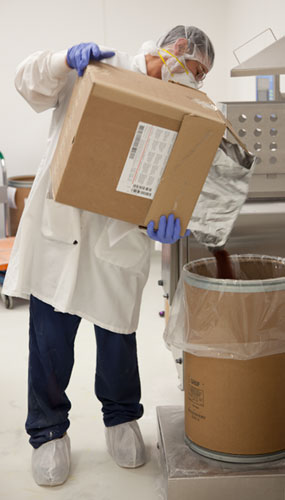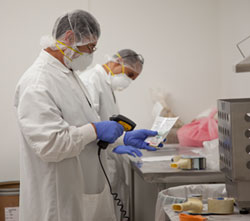by Leanne Ely
Apples are sweet and delicious, they have a long shelf life and they make a mean pie!
But why are apples so healthy? Seeing as how it is apple season once again, let's take a look!

Fiber. Apples are a great source of fiber and that fiber may combine with phytonutrients in the fruit to join forces and actually get us more dietary bang for our buck. This particular health benefit protects against heart disease and regulates blood fat levels. The fiber in a whole apple also helps keep you feeling full for a good long time after you eat it.
Anti cancer. Apples can actually reduce our risk of lung cancer. Not many fruits or vegetables protect against this nasty cancer. Scientists don't know exactly why apples are so good for our lungs, but they really are!
Anti-asthma. Studies have actually shown that apple intake is associated with decreased risk of asthma. Again, we're not exactly sure why, but it can't hurt to eat that apple a day to help those lungs!
Blood sugar. Polyphenols in apples help to process carbohydrates. They help slow down carbohydrate digestion, reduce glucose absorption and stimulate the pancreas to put out more insulin. All of this helps to regulate our blood sugar.
Cardiovascular. The water-soluble fiber (pectin) and polyphenols in apples support good cardiovascular health. Cholesterol is lowered by eating an apple a day, and apples can also lower the risk of chronic heart problems.
Antioxidants. Apples are full of polyphenols which function as antioxidants.
Yes, it's true that apples are excellent for our health. But if you don't buy them organic, all those health benefits go right out the window.
Apples have more pesticide residue on them than any other fruit or vegetable. Period. The Environmental Working Group analyzed more than 700 (washed) apples and of those samples, 98% showed pesticides - up to 48 different types.
The only way to get rid of it is to peel the apple, but even then...do you want to take the risk?
We don't know what some of these pesticides can do to harm us (scary), but it can't be good. We do know that one common pesticide used to spray apple trees (Syngenta's Paraquat) has a possible link to Parkinson's Disease.
I suggest that if you can't buy them organic, don't buy apples at all. This also goes for apple juice and apple sauce, too.
But why are apples so healthy? Seeing as how it is apple season once again, let's take a look!

Fiber. Apples are a great source of fiber and that fiber may combine with phytonutrients in the fruit to join forces and actually get us more dietary bang for our buck. This particular health benefit protects against heart disease and regulates blood fat levels. The fiber in a whole apple also helps keep you feeling full for a good long time after you eat it.
Anti cancer. Apples can actually reduce our risk of lung cancer. Not many fruits or vegetables protect against this nasty cancer. Scientists don't know exactly why apples are so good for our lungs, but they really are!
Anti-asthma. Studies have actually shown that apple intake is associated with decreased risk of asthma. Again, we're not exactly sure why, but it can't hurt to eat that apple a day to help those lungs!
Blood sugar. Polyphenols in apples help to process carbohydrates. They help slow down carbohydrate digestion, reduce glucose absorption and stimulate the pancreas to put out more insulin. All of this helps to regulate our blood sugar.
Cardiovascular. The water-soluble fiber (pectin) and polyphenols in apples support good cardiovascular health. Cholesterol is lowered by eating an apple a day, and apples can also lower the risk of chronic heart problems.
Antioxidants. Apples are full of polyphenols which function as antioxidants.
Yes, it's true that apples are excellent for our health. But if you don't buy them organic, all those health benefits go right out the window.
Apples have more pesticide residue on them than any other fruit or vegetable. Period. The Environmental Working Group analyzed more than 700 (washed) apples and of those samples, 98% showed pesticides - up to 48 different types.
The only way to get rid of it is to peel the apple, but even then...do you want to take the risk?
We don't know what some of these pesticides can do to harm us (scary), but it can't be good. We do know that one common pesticide used to spray apple trees (Syngenta's Paraquat) has a possible link to Parkinson's Disease.
I suggest that if you can't buy them organic, don't buy apples at all. This also goes for apple juice and apple sauce, too.

 Garlic- This natural spice is a powerful detoxifier and antibiotic which fights with the harmful microbes in the intestine. Just cut a garlic clove into half and put it into a glass of water. Let it settle down a bit and spread its effect in the water and then drink this solution.
Garlic- This natural spice is a powerful detoxifier and antibiotic which fights with the harmful microbes in the intestine. Just cut a garlic clove into half and put it into a glass of water. Let it settle down a bit and spread its effect in the water and then drink this solution.
 At least that’s what good grapeseed extract is. If you’ve
spent years testing different products, like
At least that’s what good grapeseed extract is. If you’ve
spent years testing different products, like  Raw material testing starts when shipments enter the
building. Quality assurance inspectors check paperwork and perform a visual
inspection for shipping damage. From there, a gowned employee, working in a
clean room with HEPA filtered air, uses written protocol to collect a
representative sample to send to the lab.
Raw material testing starts when shipments enter the
building. Quality assurance inspectors check paperwork and perform a visual
inspection for shipping damage. From there, a gowned employee, working in a
clean room with HEPA filtered air, uses written protocol to collect a
representative sample to send to the lab. 


